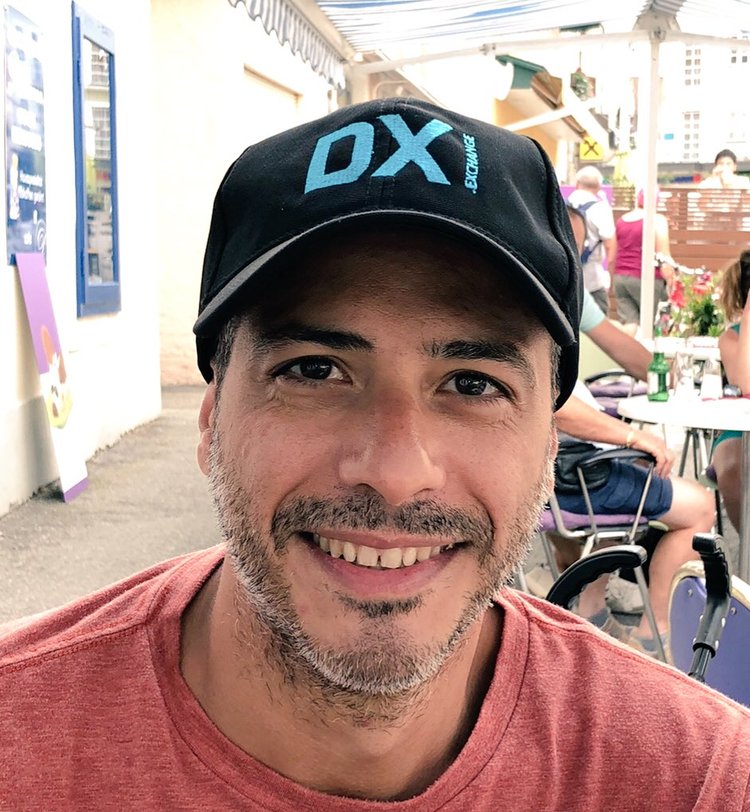DX Exchange is a cryptocurrency exchange that the media have been talking about for quite some time now. And rightly so, given its particular profile: it is based on Nasdaq’s infrastructure and matching engine, it doesn’t charge trading fees (users who trade up to 50 thousand euros per month), and is regulated under Estonian law.
In addition, its CEO, Daniel Skowronski, said from the stage of the Delta Summit in Malta that in early 2019 the main platform would be joined by a security token exchange called DXS.
We talked about this project and the latest DX-related news with Amedeo Moscato, the Chief Operating Officer of the exchange.
Ihodl.com first wrote about DX in May, when its launch was announced. How many things have changed since then?
First of all, we’ve started to deal with the marketing side of things.
Secondly, we adopted an approach that I think is unique in the industry. It's characterized by a total respect for the community, the end customer, the trader, and the investor.
I always try to learn from the mistakes of others. And if we look at what happened in October-November and January-February last year, when exchanges were stormed by new clients and couldn’t meet their demands, it’s clear that there’s a very serious problem.
No matter whether you want to buy ETH or BTC on my exchange or how much you want to spend, I have to respect you the same way. But most exchanges only speak English. Everything from support to KYC, from website to communications.
The approach of DX Exchange is instead multilingual. At the moment there are 5* languages on the site, but more are being added all the time. Some of the planned ones are Arabic and Turkish. In total, we aim to have between 10 and 15 languages.
This approach will not only affect the site itself, but also customer support, KYC, social networks, and all communications.
*Note: at the time of writing the available languages are 8: English, Italian, Spanish, French, Russian, Chinese, Korean, Japanese.
What can you tell us about the exchange’s native token?
We have just launched our token: DXCash. The token is used by customers on the platform. They can buy, sell, and use it to pay the fees.
The economy of the token is all within the exchange. At the moment it will only be present on our platform. But if others want to list it, we are willing to cooperate.
Initially, DX was to be launched in June. Instead, the platform will go live in November. How come?
The exchange has had a number of delays. When you have to deal with crypto and technology it’s natural. And when you’re dealing with crypto and security, you have to be very careful.
And we want to launch our product to the best of our ability. Right now we are in a beta testing phase, where several randomly selected users have access to the platform, which will expire at the end of the month. Then the exchange will go live 10-15 days later.
One of the elements that can decide the fortune and longevity of an exchange is liquidity, which is synonymous with institutional investors. Does the collaboration with Nasdaq help you in your contacts with this type of clientele?
We are also active on this front and there are strong contacts with institutional clients. Not only is there a lot of interest, but there has been more than one agreement. It should also be added that the weight of the partnership with Nasdaq is an important factor especially when it comes to addressing market manipulation, a problem that exists in this sector and is useless to ignore.
DX Exchange is regulated under Estonia’s law. Can you tell us more about it? Why Tallinn and not, for example, Valletta?
The truth is that we have had our Estonian license for a long time now, even before Malta spoke so loudly of wanting to become the Blockchain Island. Of course, they talked about it, but it didn't explode as it does now. Actually, I think it is just a matter of timing. Estonia was ready and we had to launch [our exchange].
Secondly, with Malta, we had, at the level of the co-founders, discussions with the Prime Minister’s staff. There were direct contacts months ago. Even before, I can say now, that Binance was closing this mega agreement. And in the end, we did not go down this path just for a number of internal reasons, although we do not exclude it for the future. We are not having a discussion with Malta at the moment, but it is still a discussion that can be resumed at any time.
So how does DXS, your security token exchange, fit into the context of the regulatory discourse?
At the moment we are working on having all the necessary permissions to be able to list security tokens. If we want to get Malta’s, too, we can do it, it's not a problem. On the contrary, we have all the requirements to do so, having already passed the Estonian regulatory scrutiny and after the deal with Nasdaq.



